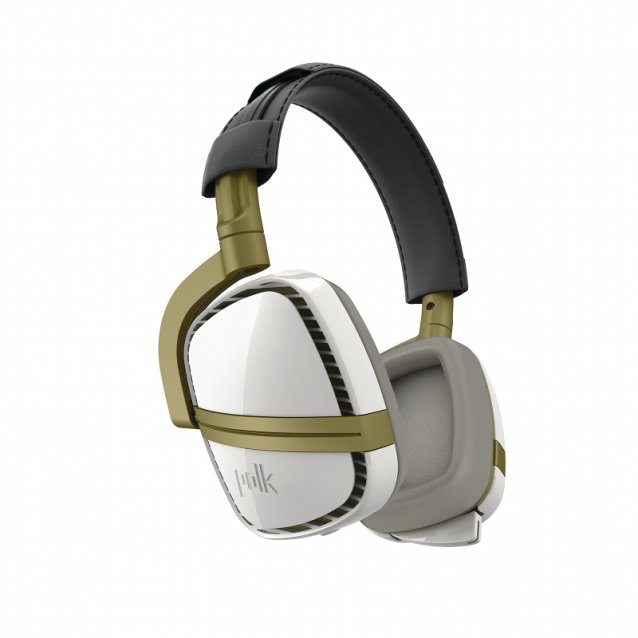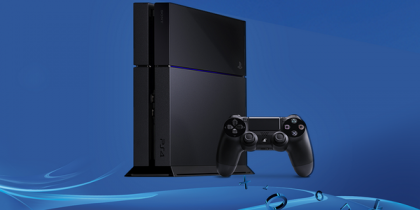


Since its founding in 1972, Polk Audio has established itself as a manufacturer of high quality speakers, subwoofers, headphones and more. But they're not a name entirely familiar in the gaming market. Polk is attempting to change that with the introduction of several headsets and a sound bar designed in conjunction with Microsoft and developers from the Forza and Halo franchises, the first of which is the Melee, a virtual surround sound headset made for the Xbox 360.
Physically, the Polk Melee presents itself as the antithesis of most gaming headsets. It features a slimmer profile than its competitors, smaller in size and with and less obnoxious curves. A microphone rests within left ear cup and can be retracted or hidden with a simple push. Additionally, there are no garish nor abundant markings cluttering its surface. It comes in three solid finishes with the company's name etched onto the outside of the cups.
That all makes for what I believe is one of its stronger selling points: its good looks allow it to double as a traditional pair of headphones capable of being worn in public without feeling embarassed. An included cable can connect it to and take calls from other devices. That may be an important consideration, as for now the Melee's gaming features are designed primarily for use with the aging Xbox 360 until Microsoft releases the adapter for the Xbox One.
 Its size is a both blessing and a curse, however. For those longer gaming sessions, the circumaural cups proved a little too small for my average-sized ears. They just didn't offer enough breathing room. It was never an uncomfortable fit, thanks to the soft but not hot pleather cushioning, but it did cause some fidgeting.
Its size is a both blessing and a curse, however. For those longer gaming sessions, the circumaural cups proved a little too small for my average-sized ears. They just didn't offer enough breathing room. It was never an uncomfortable fit, thanks to the soft but not hot pleather cushioning, but it did cause some fidgeting.
Virtual surround sound is produced by an external digital sound processor. It's a device not unlike Astro's mixamp in function and features a similar setup. An optical and USB cable run from one end of the DSP to the Xbox 360, while two more cables run to the gamepad and headset. A button on the side of the DSP allows you to toggle between stereo and surround with an LED to indicate what mode you've enabled. Interestingly, volume and equalizer options are not controlled on the DSP itself. Polk has instead placed them on a separate audio mixer that connects directly into the gamepad's headset port.
It's an intelligent decision I'm surprised few if any other manufacturers have made before, as it meant I never had to look away from the screen or take my hand off the gamepad to adjust those audio settings. The mixer isn't large, either, so it's never obtrusive. Game and chat volumes are managed via two knobs, both of which can be pushed inward to mute their individual channels. A single button toggles between the four equalizer presets - Halo Warrior, Forza Racer, Cinema and Music - with an LED underneath to indicate by color the selection and mute status. My only complaint is the lack of feedback on the volume knobs.

The surround sound provided by Polk's DSP is clear and accurate. The direction of audio sources were easily determined during my many hours of Call of Duty matches and Forza 4 races. The equalizer presets bring out the qualities of each type of content quite well, too. Engines roar and bullets fly from their barrels with satisfying loudness when set to Forza Racer and Halo Warrior respectively. What's not thunderous is the bass. It's there, though it's not the focus.
Despite being a closed-back headset, meaning the outer parts of the cups are fully enclosed, the Melee's sound stage is surprisingly wide. Typically closed headsets have a claustrophobic quality to them, as if the audio is projecting from inside your head rather than around and beyond you. That's not the case with the Melee. It doesn't have the same airy depth of an open pair, of course, but its excellent noise isolation coupled with its fairly wide sound stage is a welcome feat that I haven't heard too often.
As good as those qualities are, the digital sound processors in the two units I was sent produced audible white noise regardless of set volume. It was masked and ignorable during gameplay, but it was never completely absent. I ultimately spent several days talking to the very nice, dedicated people at Polk about that issue. It was suggested that the sound floor had somehow moved upward and is something they'll continue to look into and work to resolve. No user or professional review has experienced the same static hiss, however, so it's quite possible I am the exception and not the rule.
Gaming headsets serve specific needs, but it can also make them narrow. Those in my entertainment room stay in that room. The Polk Melee is a headset that doesn't have to be locked to that fate. Its slim, good looks, wide sound stage and exceptional noise isolation give it a versatility that its competitors lack. It's a commendable entry into the gaming market, though the white noise I experienced, small ear cups and relatively high asking price don't make it a perfect one, either. Regardless, the Melee has made me eager to see a continued presence by Polk and what they'll offer next.




 MGS V: The Phantom Pain - Extra High Graphic Settings MOD
MGS V: The Phantom Pain - Extra High Graphic Settings MOD Ranking Unlocks in Grand Theft Auto 5 Online
Ranking Unlocks in Grand Theft Auto 5 Online Metal Gear Solid V Guide - How to Get a Higher Heroism Score
Metal Gear Solid V Guide - How to Get a Higher Heroism Score The Witcher 3 Monster Guide - How to Beat the Noonwraith
The Witcher 3 Monster Guide - How to Beat the Noonwraith How to Fix PlayStation 4 infinite restart loop issue
How to Fix PlayStation 4 infinite restart loop issue